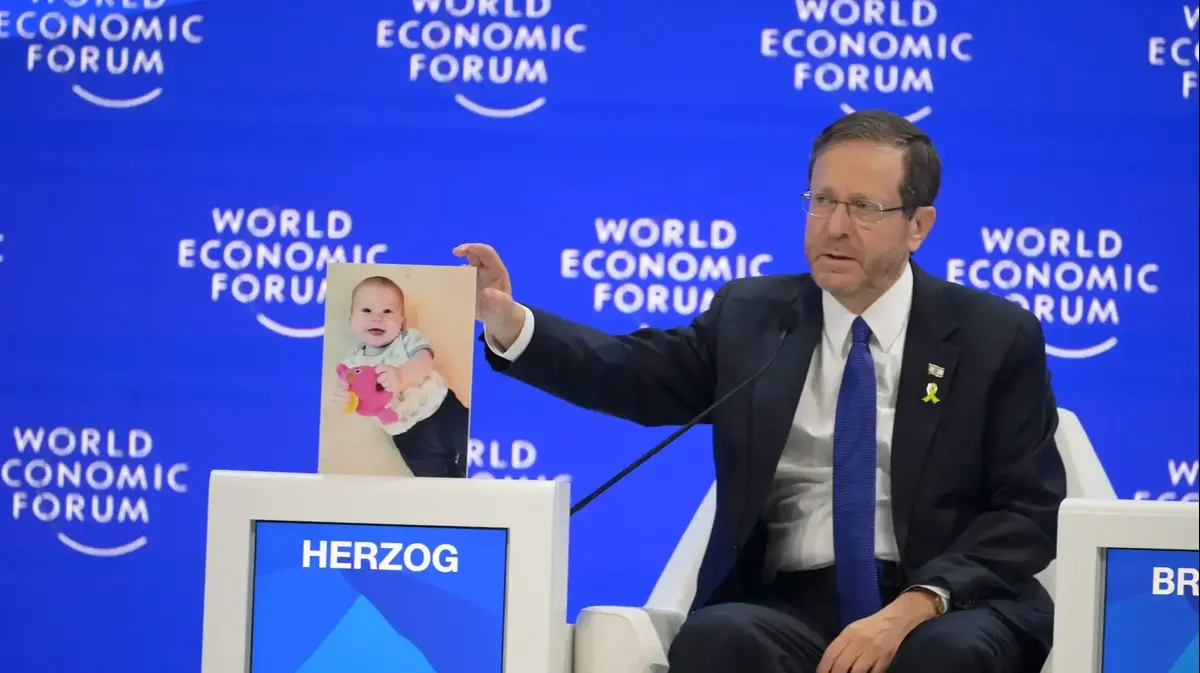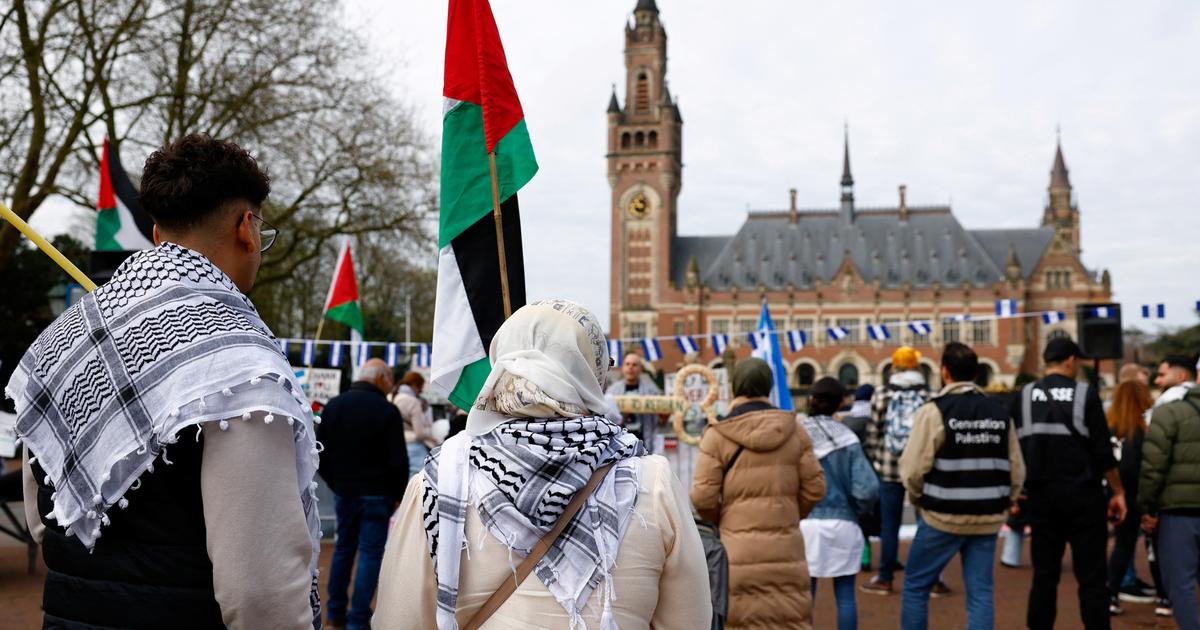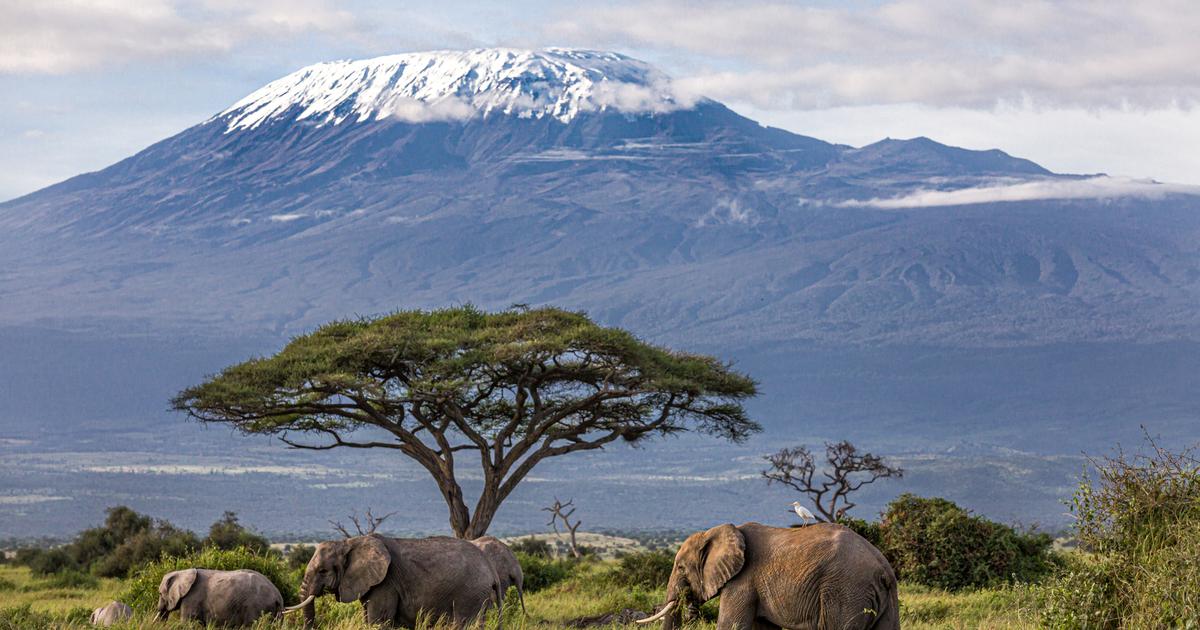Enlarge image
Most of the farms around the Waterberg are still owned by Namibians of German descent
Photo: Willem Vrey / GGImages / DER SPIEGEL
Wilhelm Diekmann rummages in the yellow grass, and after a few seconds he finds what he is looking for. In his hands he is holding an old metal part, the shell of a projectile fired from the cannons of the German colonial army. At the top you can still see a scratched scale, a mechanism for delayed ignition. "The Herero were terrified of these cannons," says Diekmann. Then he holds up two rusty rifle barrels: “Those were the Herero weapons. We found all of this on our farm. "
Wilhelm Diekmann is the owner of the Hamakari hunting and guest farm on the Waterberg in central Namibia. The business lives from cattle breeding and tourists, in the evening there is self-hunted antelope meat. The Diekmann family is the fifth generation to run the farm; they are among the approximately 20,000 German-Namibians who have remained. Tradition is important to them: photos of their ancestors hang everywhere, and a family tree in the dining room. "I want to bequeath this farm to my son as it was once bequeathed to me," says Diekmann.
And yet Hamakari is not just any farm, not here in historically so charged Namibia. Wilhelm Diekmann parks his safari jeep at a large watering hole, with ibises circling in the air. "They bring luck," says the farm owner and adjusts his hat. This watering hole is a place of misfortune, at least for the Herero people. This is where the remaining Herero gathered in 1904 after the German protection troops had put down their revolt, pushed them back and largely surrounded them. From here they set out for the arid steppe area of Omaheke.
What followed is now recognized by the German state as genocide: tens of thousands of Herero died of thirst, the troops of the German colonial rulers prevented their return and, according to genocide researchers, also occupied water holes. The extermination order from the leader of the local protection forces, Lieutenant General Lothar von Trotha, plays a central role in historical research: “Within the German border, every Herero is shot with or without a rifle, with or without cattle. I no longer take in women and children, drive them back to their people or have them shot at. "
The pastoral people not only lost about two thirds of their population, but also all of their livestock.
The land was expropriated by a German administrative act.
“When I hear the Herero talking about it, I am moved, they are close to me.
I want to understand what they feel, «says Wilhelm Diekmann.
Five generations lie between the events of 1904 and the present - and yet the conflict is omnipresent.
Five years after the Battle of Waterberg and the expulsion of the Herero, Diekmann's great-great-grandfather Gustav acquired the land from the colonial administration and shortly afterwards began raising cattle. At that time, the inequality in Namibia cemented itself and continues to this day: 70 percent of private commercial land is still owned by white farmers. The Herero, on the other hand, own next to nothing to this day. "Land is the main reason for all disputes, it is of the greatest importance for everyone involved," says Wilhelm Diekmann.
To understand the current debate about the German-Namibian reconciliation agreement, one has to look at the simmering land conflicts.
Everywhere in Namibia, but especially among the Herero and Nama, calls for a fair distribution of land have been louder since independence in 1990.
An acknowledgment of the genocide and an official request for forgiveness
are an important step towards reconciliation for most of the descendants of the victims.
But there will be no peace without a solution to the land issue.
And the land question in Namibia is always a question of skin color.
"We will take the German farms!", "We know where you live!", "We will break into your houses and take everything valuable with us." Such messages are currently circulating on WhatsApp and Facebook.
The anger is boiling, especially about the agreed payments by the German state: 1.1 billion euros over 30 years.
Many of those affected find far too little.
Most of all, they want the land of their ancestors back.
A former minister even warns of a civil war.
“I'm not going to involve my ancestors in this guilt complex.
I won't make a sacrifice just for the sake of it
To do a dead man for the Namibian state, «says Wilhelm Diekmann.
In principle, he is ready to negotiate about his property - but only in exchange for at least equal land.
After all, he and his ancestors would have built all of this with our own hands and legally acquired it at the time.
Wilhelm Diekmann says that he himself was most interested in living peacefully with his neighbors, the Herero.
But how can that work when one person owns 12,000 hectares of land and the other lives in a kind of reserve?
On the other side of the fence, directly adjacent to Diekmann's farm, is the village of Oukuas, inhabited by Herero.
The contrast could hardly be greater.
In Oukuas there are small, white tin huts.
An elderly man with a rake in his hand burns garbage, next to him a woman kneels and plants seeds in the earth.
Children play catch.
Oukuas is located on so-called »communal land« - formally it belongs to the state, but may be used jointly by the residents.
“We're fenced in on two sides, like a camp. It used to be our ancestral land there, then it was taken away from us and now belongs to the whites. We don't even have enough to feed our cattle when times are bad. When they run out of grass, they starve to death, ”says Esau Mbakera, one of the village elders.
At the end of last year, the conflict with the white neighbors escalated. What exactly happened now has to be clarified by a court. One thing is certain: Esau Mbakera's grandson was shot dead by a security guard from the Diekmann farm. Together with other young men from the village, he had invaded the land of the Diekmanns. "He just wanted to bring back the goats that slipped through the fence," claims the grandfather. He wanted to steal game or cattle on Hamakari, says the other side; the police suspect this too. A court must now clarify whether it was murder or self-defense.
Whatever happened, the already tense atmosphere fueled it.
"We have become criminals on our own land," complains Esau Mbakera.
“We village elders can only with difficulty hold back the youth from keeping the peace.
They're very upset. ”There were protests in front of the entrance to the Hamakari farm.
"If the borders are respected, things like that don't happen," replies Wilhelm Diekmann.
From his point of view, the relationship with the neighbors is still good.
However, if there was a confrontation, he would not go.
The German-Namibian Agreement was intended to calm the minds and create peace. The land question is also addressed in it. According to the Namibian government, almost 500 million euros from Germany are to be used for the purchase and redistribution of farmland. Far too little, criticize many of those affected and chiefs of the Herero. The loudest voice of the protest is probably Vekuii Rukoro, the Paramount Chief, the highest traditional authority of the ethnic group. How many Herero he actually represents is a matter of dispute.
But one thing is certain: He is not alone with his criticism of the agreement: “We see a racist and manipulative German leadership. They want to deal with Namibia like they would with their vassal state, «complains Rukoro. When asked about the threats to take the country back by force, he says this ambiguous sentence: “We are trying on a diplomatic, political and legal level. But if all of this does not lead to a just solution: Desperate people do desperate things. Are we to blame then? "
Erika von Wietersheim, herself a German-Namibian, has spent a long time studying the land conflict and has written a book about it. “This land is my land” is the motto - “This land is mine.” She can understand the disappointment of those affected: “It is as if most of the Herero and Nama are walking into the future with their backs first. They look to the past because they have no future perspective. But at the moment all sides are insisting on their rights, hardly anyone wants to find a solution. «She considers the German-Namibian Agreement to be a first step, but inadequate:» I was surprised that the Namibian government agreed to this, «says von Wietersheim.
How much money is appropriate in reparation for genocide?
When is at least the majority of those affected satisfied?
In any case, the Namibian government is trying to limit the damage: The agreement is only a start, the amount can be increased later, some participants hope.
But the German Foreign Minister Heiko Maas made it clear in the Bundestag last week: The negotiations are over, that's it.
The situation remains in motion.
Festus Tjikuua sleeps in a tent 100 kilometers south of the Diekmanns' Hamakari farm.
He doesn't have his own house here yet, but he does have his own land.
It was leased to his family for the next 99 years.
He is one of the few Herero who have benefited from the so-called resettlement program and have been allocated a farm, 2000 hectares after all.
As part of this program, the Namibian government is buying up land and distributing it to "formerly disadvantaged population groups", i.e. the black population. Tjikuua now keeps cattle on his farm and grows some corn. “When I got here, I saw the hill where my grandmother is buried. That gives me my strength back. I feel closer to my ancestors again, ”says Tjikuua.
The farmer is one of the more moderate voices of the Herero in Namibia. He himself was involved in the negotiations between the German and Namibian governments in an advisory capacity, but he is not happy either: “The money is not enough, that is clear to us. Buying land and tapping water to farm it is expensive. "Then Tjikuua quotes an African proverb:" If you manage to milk the first teat of a wild cow, you will eventually manage to close all four Get it. «The wild cow is the Federal Republic of Germany. She is still pretty stubborn.
When Festus Tjikuua was assigned the farm three years ago, there wasn't much there.
The previous owners had left the land, the borehole for water had dried up.
“The government told me: This is your country.
Then they left. «Many resettlement farms have perished in recent years, because most new farmers are overwhelmed without the necessary support and know-how.
Tjikuua was lucky: he got help from his neighbor, a German-Namibian.
“We should lead by example.
We should show that we can reconcile and live together peacefully, ”says Tjikuua.
But when it comes to genocide, understanding is over - the Herero and his German-born neighbor still don't have a common denominator.
Even he does not want to rule out an outbreak of violence. In some ways, the reconciliation agreement could even contribute to a confrontation. Currently, some white farmers want to sell their land - but the government lacks the money to buy and redistribute it. Thanks to the German fund, that could change now. The government might even have more financial means than land is for sale - so it would have to find more land.
But there were only two options left: expropriating the white farmers or attempting an amicable settlement. “The land was torn from us with our blood,” says Festus Tjikuua, “so why can't the white farmers give something voluntarily? That would be the spirit of reconciliation. ”If that doesn't work, expropriations will be needed - with compensation. It would be a politically extremely delicate, but entirely possible, constellation: farmers of German origin in Namibia would be expropriated - financed from German funds from the reconciliation agreement.
Wilhelm Diekmann hopes it doesn't come to that.
"You can negotiate anything, you always have to be willing to compromise before it comes to violence," he says.
But he doesn't want to voluntarily cede part of the farm.
At most an equivalent exchange.
"The genocide debate is driving a wedge into our peaceful coexistence," says the farm owner.
On the other side of the fence, one wonders what kind of peaceful coexistence is meant: “There is no peace between us.
They will never allow us to coexist peacefully, ”says a village elder.
If the two governments have their way, the German-Namibian Agreement should be approved by the parliaments of the two states as soon as possible.
Then Federal President Steinmeier is supposed to travel to Namibia to pronounce an official apology for the genocide.
Hardly anyone in Namibia believes that this will bring calm to the heated land conflict.
The Hamburg historian Jürgen Zimmerer has been researching genocide in Namibia and its consequences for decades.
He is certain: the land conflict can hardly be overcome anyway, it needs a rethink.
“We also have to look for other solutions to create wealth for people.
Namibia would have to become a kind of Singapore, a high-tech location in Africa. ”But with the German-Namibian agreement
not to do that.
Collaboration: Tileni Mongudhi
This contribution is part of the Global Society project
Expand areaWhat is the Global Society project?
Reporters from
Asia, Africa, Latin America and Europe
report under the title “Global Society”
- on injustices in a globalized world, socio-political challenges and sustainable development.
The reports, analyzes, photo series, videos and podcasts appear in the international section of SPIEGEL.
The project is long-term and will be supported for three years by the Bill & Melinda Gates Foundation (BMGF).
A detailed FAQ with questions and answers about the project can be found here.
AreaWhat does the funding look like in concrete terms?
The Bill & Melinda Gates Foundation (BMGF) is supporting the project for three years with a total of around 2.3 million euros.
Are the journalistic content independent of the foundation?
Yes.
The editorial content is created without the influence of the Gates Foundation.
Do other media have similar projects?
Yes.
Big European media like "The Guardian" and "El País" have set up similar sections on their news sites with "Global Development" and "Planeta Futuro" with the support of the Gates Foundation.
Have there already been similar projects at SPIEGEL?
In the past few years, SPIEGEL has already implemented two projects with the European Journalism Center (EJC) and the support of the Bill & Melinda Gates Foundation: the “Expedition ÜberMorgen” on global sustainability goals and the journalistic refugee project “The New Arrivals” within the framework several award-winning multimedia reports on the topics of migration and flight have been produced.
Where can I find all publications on global society?
The pieces can be found at SPIEGEL on the topic Global Society.






/cloudfront-eu-central-1.images.arcpublishing.com/prisa/FC2JGDYILLNJ6BRVNJRA6ATY6Y.jpg)




/cloudfront-eu-central-1.images.arcpublishing.com/prisa/KMEYMJKESBAZBE4MRBAM4TGHIQ.jpg)



